President Trump kept up the tough talk on China, who he blamed for hurting the world economy with Covid-19, but his trade war that has defined US China relations appeared to miss key targets as the election neared on 6 November. Tensions soared over Taiwan as Beijing stepped up military preparations to improve its invasion capability, and the US State Department approved the potential sale of three weapons systems to Taipei. This article is a summary of major news items concerning China US relations in October 2020.
Focus on “preparing to go to war” Xi Jinping told marines at a Guangdong military base, while the PLA increased preparations by air, sea and land to exert pressure on the Taiwanese government. The USS Barry passed through the Taiwan Strait, enraging China. At least 60 American warplanes conducted close-up reconnaissance flights near China in September, and analysts concluded that the US is preparing for future long-distance missions in the South China Sea.
The Trump administration assured voters that agricultural trade data showed a win for US farmers, with Beijing on track to fulfil its commitments in the US-China trade deal by the end of 2020. Analysts said the claims are misleading and “overly optimistic”. China accelerated purchases of US farm products last month, but remains far behind on its overall commitments. As for manufacturing, Trump’s trade war didn’t achieve the central objective of reversing a US decline in manufacturing, despite tariffs that reduced the trade deficit with China in 2019.
A senior White House official attacked Xi Jinping’s “totalitarianism” and called on Chinese people to research the “truth” about oppression of Uighur Muslims. Xi emerged from a key party meeting newly emboldened, with a road map for many years to come.
Competition in space exploration is set to soar after Washington signed the Artemis Accords with seven other nations, excluding China and Russia. Down on earth, Trump national security adviser Robert O’Brien accused China of trying to steal COVID-19 vaccine research, and cast it as a malign rival seeking to monopolise every important industry. The Five Eyes spy alliance has received renewed requests to accept new members.
In a Korean War anniversary speech, Xi warned that “China is ready” to stand up to American imperialists once more. American citizens in China may become diplomatic hostages in response to US prosecution of Chinese military-affiliated scholars. Beijing also vowed retribution against US journalists in China.
The State Department proposed adding Ant Group to a trade blacklist, while military aerospace giant AVIC, China’s Boeing wannabe, may also land in US government crosshairs, wrote Bloomberg. Yet Wall Street shows strong appetite for China profits, and enjoys better than ever access. Beijing sold dollar debt directly to US buyers for the first time. “Time is on China’s side and it’s not on the United States’ side,” said Ray Dalio, founder of Bridgewater, which plans to expand in China.
Xi wished Trump a speedy recovery from COVID-19, but it failed to change the patient’s tune. “China’s going to pay a big price, what they’ve done to the world. This was China’s fault,” Trump insisted. In a clear, Cold War swipe at China, the US released guidance on its immigration laws that will make it almost impossible for members of a Communist party “or any other totalitarian party” to be granted permanent residence or citizenship of America.
SIMC, China’s biggest chipmaker, is facing export restrictions on its US suppliers. The US is also exploring curbs on Ant Group and Tencent, as the Trump’s team sees a security risk in Chinese payment services. The US identified China as the global hotspot for goods made with forced labour. Beijing will launch an antitrust probe into Google, revealed Reuters.

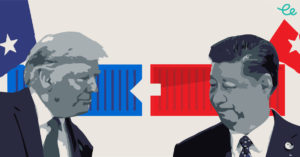
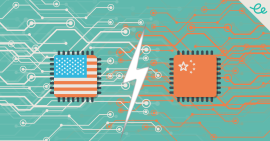
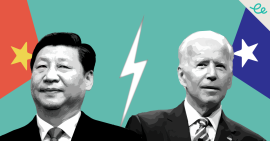
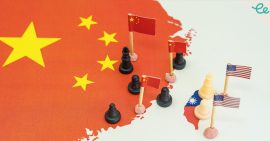
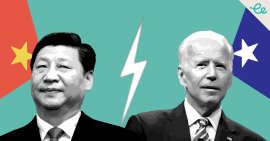

Comments are closed.